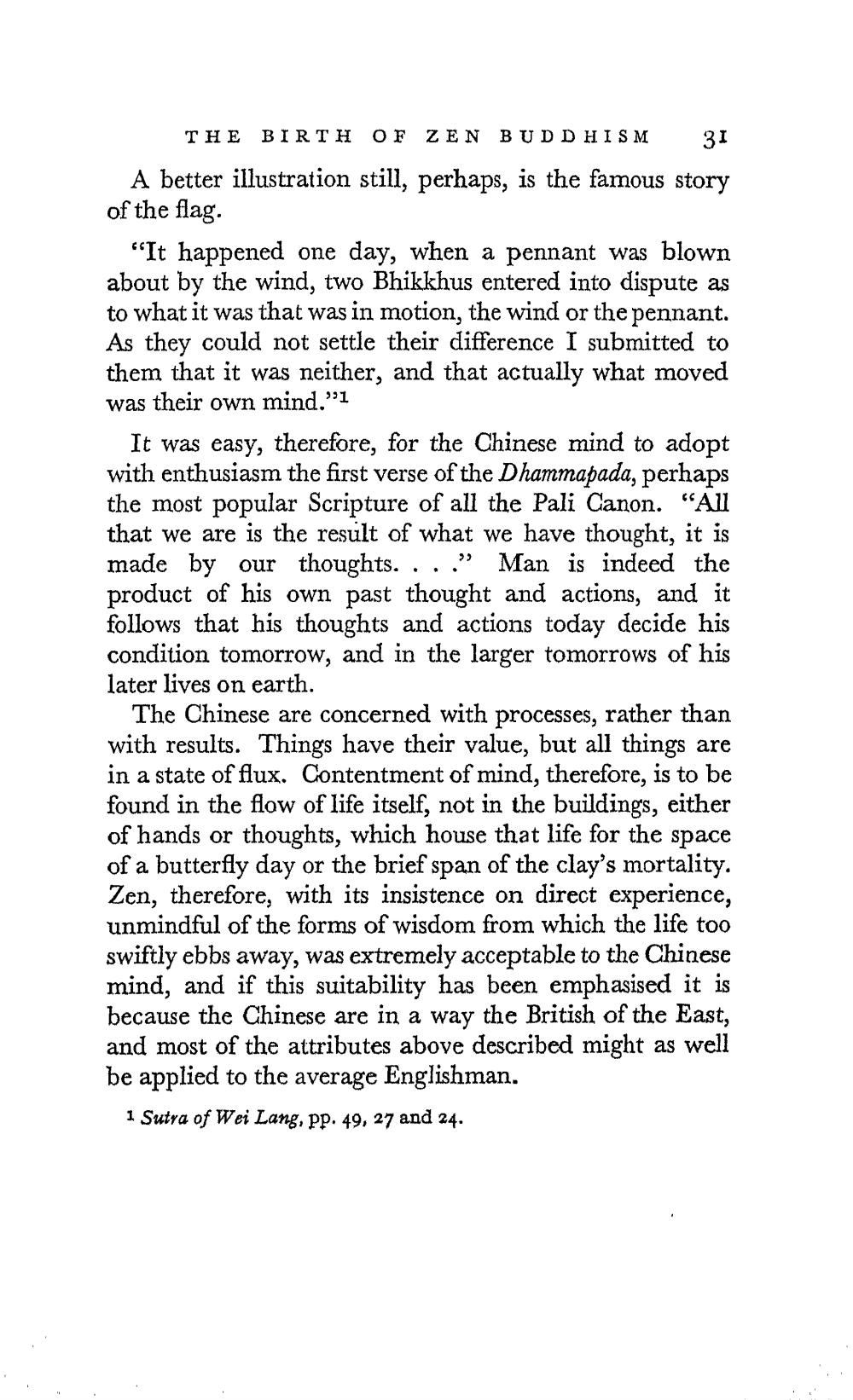________________
THE BIRTH OF ZEN BUDDHISM 31 A better illustration still, perhaps, is the famous story of the flag.
"It happened one day, when a pennant was blown about by the wind, two Bhikkhus entered into dispute as to what it was that was in motion, the wind or the pennant. As they could not settle their difference I submitted to them that it was neither, and that actually what moved was their own mind."1
It was easy, therefore, for the Chinese mind to adopt with enthusiasm the first verse of the Dhammapada, perhaps the most popular Scripture of all the Pali Canon. "All that we are is the result of what we have thought, it is made by our thoughts...." Man is indeed the product of his own past thought and actions, and it follows that his thoughts and actions today decide his condition tomorrow, and in the larger tomorrows of his later lives on earth.
The Chinese are concerned with processes, rather than with results. Things have their value, but all things are in a state of flux. Contentment of mind, therefore, is to be found in the flow of life itself, not in the buildings, either of hands or thoughts, which house that life for the space of a butterfly day or the brief span of the clay's mortality. Zen, therefore, with its insistence on direct experience, unmindful of the forms of wisdom from which the life too swiftly ebbs away, was extremely acceptable to the Chinese mind, and if this suitability has been emphasised it is because the Chinese are in a way the British of the East, and most of the attributes above described might as well be applied to the average Englishman.
1 Sutra of Wei Lang, pp. 49, 27 and 24.




